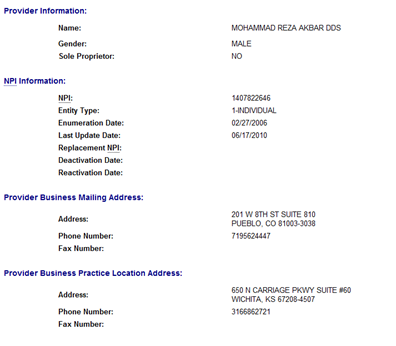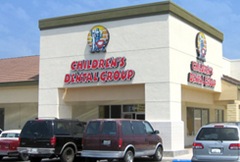 Mike McCulla – Marketing for Church Street Health Management LinkedIn - http://www.linkedin.com/pub/mike-mcculla/1a/4a0/521
Mike McCulla – Marketing for Church Street Health Management LinkedIn - http://www.linkedin.com/pub/mike-mcculla/1a/4a0/521 LinkedIn profile used to say he is/was Marketing at Children’s Comprehensive Services. He’s dropped that and added Universal Health Services.
He’s been with Michael G. Lindley, Al Smith and others for a long time. Even as far back as when CCS went under the name Pricor.
Mike McCulla, Michael J. Lindley , Al Smith, Rodney Cawood, and Brad Gardner together with others were owners of Pricor. So this nastiness of treating children badly is nothing new to these creeps. They have made a very nice living doing it. Somehow you can find trotting around Nashville with their heads up, and not hanging in shame. I don’t know how, but they do it, daily.
Purchase Agreement for Keys and CCS – the above named creeps are named as the sellers. A year later they are abusing children again through their Small Smiles Dental Centers. Snakes in the grass, no doubt.
Pricor History – It was not a nice company; Texas had real issues with the company.
Type: Public Company
Address: 3401 West End Ave., Ste. 400, Nashville, Tennessee 37203, U.S.A.
Telephone: (615) 250-0000
Fax: (615) 250-1000
Web was: http://www.ccskids.com
Employees: 3,000
Sales: $126.77 million (2000)
Stock Exchanges: NASDAQ
Ticker Symbol: KIDS
Incorporated: 1985
NAIC: 623990 Other Residential Care Facilities; 624110 Child
SIC: 8361 Residential Care; 8211 Elementary & Secondary Schools; 9223 Correctional Institutions
Children's Comprehensive Services, Inc. (CCS) based in Nashville, Tennessee, is one of the nation's leading providers of educational services, psychiatric treatment, and juvenile corrections for at-risk children and juveniles in the United States. Operating in 14 states and serving over 3,700 children and their families, CCS staffs both residential and day treatment facilities that provide services ranging from special education for autistic and developmentally delayed children to more intensive boot-camp programs set up to rehabilitate juvenile offenders. CCS has contracts with both governmental and non-governmental nonprofit agencies in Alabama, Arkansas, California, Florida, Hawaii, Kentucky, Louisiana, Michigan, Montana, North Carolina, Ohio, Pennsylvania, Tennessee, and Utah.
The contemporary privatization of government correctional facilities seemed to have been born out of the inspiration of several groups of investors from Nashville, Tennessee. Nashville was the birthplace of two of the three earliest and largest pioneering companies in the business--Corrections Corporation of America and Pricor Inc.
Pricor was founded in 1985 in response to a need for more and better run prisons in the United States and the belief that there was money to be made offering smaller municipalities private assistance. Prisons were overcrowded and significant amounts of money were being spent on building and maintaining correctional institutions. Pricor and its investors believed that through privatizing the industry it could successfully manage and correct the flawed system of both adult and juvenile corrections, and turn a profit at the same time.
Originally most of the available contracts for private prison operation were with women's detention centers, immigration holding centers, and juvenile justice placements, but Pricor succeeded in obtaining a contract for staffing and managing a maximum security jail in Greene County, Tennessee, in the late 1980s.
Pricor expanded operations into Alabama and Virginia in 1986, opening minimum security detention centers for a total of 170 inmates. In 1987, Pricor leased two facilities from a hospital system in California, and began its California operation. The state of California and its various municipalities remained one of CCS's largest client populations.
While still hoping to make significant strides with adult corrections, Pricor took what contracts it could get and ended up working closely with juvenile offender populations throughout the 1980s. In 1988 the company acquired Advocate Schools, a company dedicated to the care, education, and treatment of at-risk youth in California. Advocate Schools contracted with school districts based on referrals. Offering both community-based programs in which students attended an Advocate School on a day-to-day basis, and residential schools for students with more intensive needs, the school maintained nine community based sites throughout California. The original site in San Bernardino was established in 1982 with other sites opening throughout the 1990s. Nine residential schools made up the remainder of the Advocate Schools campus, making it the largest nonpublic alternative school system in California.
Advocate Schools was cofounded by Amy Harrison and Martha Petrey, who were retained by Pricor as vice-chairman/president and executive vice-president, respectively. Harrison was also cofounder and executive director of Helicon, a nonprofit group that contracted with CCS in a number of joint ventures.
It was during the Reagan Era, with its tougher prison sentences and stiffer drug conviction penalties, that Pricor made its most ambitious attempt to deal with overcrowded prison conditions in metropolitan counties. Pricor convinced rural county jails to contract with the company and offer their largely empty jails to prisoners from more populous regions for a fee. Pricor teamed up with Houston-based N-Group and first pitched the "jails for hire" plan in west Texas in 1990. The companies convinced municipalities to build new facilities with millions in government bonds and Pricor experienced tremendous initial success, with revenues of over $30 million in fiscal 1991. However, the lucrative payoff to Pricor was mainly in short term up-front fees. Eventually the deal turned sour, with the private prisons remaining empty and therefore unprofitable; for its alleged corporate misdeeds, Pricor was named by a Texas grand jury as an "unindicted co-conspirator" with N-Group. N-Group's penalties were far greater, however, as it was indicted on criminal antitrust charges.
With the Texas dealings now a nightmare, the company found itself losing money in 1992. Facing a tenuous financial future in adult corrections, Pricor exited the business in 1993. Instead, Pricor was increasingly moving forward with its juvenile facilities, and in 1994 the company's board of directors approved a re-direction of the company and an accompanying name change. Pricor was now to be known as Children's Comprehensive Services Inc. (CCS). The company was traded under the symbol KIDS on the NASDAQ. By the end of fiscal 1994, CCS was serving over 1,500 children and their families in Alabama, California, Louisiana, and Tennessee.
Pricor benefited greatly with the passage of The Individuals with Disabilities Education Act (I.D.E.A.). The new federal law mandated that states provide every school-age child with a free and appropriate public education. If a public school was unable to accomplish the mandate through its normal operations, a school district was enabled to refer a student to a nonpublic school able to provide the services required. Pricor and Advocate Schools functioned to provide special needs services to school districts all over the state of California.
In addition to redirecting the company in 1994, CCS also undertook a financial restructuring in an attempt to keep the company solvent. In 1993, Pricor had solicited help from T. Rowe Price Strategic Partners Fund II, L.P. in the form of a one-year $1.5 million term loan. The company was also granted a renewal of a $10 million revolving credit facility through its banks. Pricor was in default on the credit and T. Rowe Price and Pricor settled on approximately one-third of Pricor's outstanding common stock shares at a purchase price of $1.8 million for its having cured its default status and for re-securing the loan.
The second part of the financial restructuring involved converting the company's short-term loans from both its banks and T. Rowe Price into long-term obligations. Pricor, now CCS, had commitments to National Health Investors, Inc. for $6.5 million and T. Rowe Price for $1 million. The local First American Bank of Nashville completed the financial overhaul when it extended a line of credit to CCS for the purposes of supplying working capital to keep CCS afloat. All told, the company was dangerously close to bankruptcy and had it not been for the aid of the financial institutions CCS would have more than likely folded.
CCS provided services in a variety of areas for children and adolescents. Treatment facilities were devoted to rehabilitating youth who were sexually abusive, had substance abuse issues, or needed crisis intervention for all sorts of emotional needs. The special education service centers, including Advocate Schools, concentrated their care on students suffering from a diverse range of special needs, including autism and attention deficit disorders.
Children's Comprehensive Services relied on reimbursement from Medicaid, managed care, and private insurance companies. Day treatment programs provided the greatest financial return to the company, but rates varied according to the contracting parties. Some states cut reimbursement costs, greatly affecting CCS's profit margin and sometimes leading to discontinued services, as in the case of CCS of Montana and the Helicon Youth Center in California.
CCS offered programs to deal with a wide variety of problem areas for the child and juvenile patient. The company tailored its operations to very individualized treatment plans and had centers throughout its 14-state region that met the diverse needs of its target population.
In September 1998, CCS acquired Ameris Health Systems, Inc. Ameris' wholly owned subsidiary American Clinical Schools, Inc. operated treatment facilities for juvenile sex offenders in several states. The following December the company acquired Somerset Inc., a California company that provided educational day treatment to children and their families. The company merged with Ventures Healthcare of Gainesville, Inc. in June 1998, making the year an important one for company growth.
In August 2000 CCS opened the Dallas alternative education program as well as Bristol Youth Academy in Liberty County, Florida. The company also expanded the hospital facility it operated in Ohio.
In October 2000 the company retained McDonald Investments Inc. to assist the company with its financial resources. The company was looking at a possible sale to a competitor. It was undetermined at the time whether the company would be divided up or sold in its entirety. Company leadership was looking to McDonald Investments as well to assist them in their decision making.
In November 2000, CCS closed its long established Helicon Youth Center (HYC) and its related school. Helicon Youth Center had undergone a licensing investigation by Community Care Licensing (CCL), a division of California's Department of Social Services, and CCL had some concerns with the center. A two-year probationary agreement was established between CCL and HYC but in the meantime referrals were no longer made by Riverside County and there was a significant drop-off in the number of clients. The company also experienced a decline in students to its non-residential day treatment programs.
As the company entered the new millennium the outlook for Children's Comprehensive Services was mixed. William Ballard, chairman and CEO, optimistically stated, "We believe CCS's prospects for additional profitable growth are supported by the market's continued strong demand for services for at-risk youth. Our pipeline of potential contracts has expanded because of our reputation for quality, the wide variety of services we offer, and increased interest in our specialty programs such as the gender specific treatment programs." Yet the company appeared unprepared to forge ahead on its own. Indeed, CCS ended fiscal 2001 with an offer of a buyout. The details remained undisclosed, but the potential buyer was described as one of CCS's major competitors.
There was no disputing that mental health issues among youth were now at crisis proportions in the United States and that the juvenile justice system was overcrowded and in need of assistance.
With the rising demand for specialty services among youth, CCS, or whomever was involved in its takeover, appeared to be well positioned to help in the education and treatment of some of the nation's highest at-risk youth. A larger public policy question was whether the country and its municipal governments would be willing to pay the high cost of such services to private companies over the long haul. If government entities believed that CCS could provide quality care at a reasonable cost to the taxpayer the contracts would continue to be signed and CCS and its investors would reap the benefits.
Principal Subsidiaries
Children's Comprehensive Services of California, Inc. d/b/a/ Advocate Schools; CCS/ Altacare of Arkansas, Inc.; CCS/ Bay County, Inc.; CCS/ Gulf Pines, Inc.; CCS/ Lansing, Inc. d/b/a/ Rivendell Center for Behavioral Health; CCS of Montana, Inc.; CCS/ Rivendell of Arkansas, Inc.; CCS/ Rivendell of Kentucky, Inc.; CCS/ Salt Lake City, Inc., d/b/a/ Copper Hills Youth Center; Ventures Healthcare of Gainesville, Inc.; Chad Youth Enhancement Center; CCS/Meadow Pines, Inc.; American Clinical Schools, Inc.; Tennessee Clinical Schools, Inc., d/b/a Hermitage Hall; Alabama Clinical Schools, Inc.; Pennsylvania Clinical Schools, Inc.; Somerset, Inc.; CCS of Hawaii, Inc.
Principal Competitors
Cornell Corrections Inc.; Ramsay Youth Services, Inc.; Res-Care, Inc.
Further Reading
"Children's Comp Could Shop Itself," Mergers & Acquisitions Report, October 16, 2000.
"Children's Comprehensive Services Inc. First Quarter Financial Results, Managed Behavioral Health News, November 23, 2000.
"Children's Comprehensive Services Inc. (in Talks to Sell Firm)," New York Times, June 16, 2001, p. B3.
"County Hears Sales Pitch by Jail Firms," St. Petersburg Times, November 13, 1987, p. 1.
"Education Microcap Chalks Up Possible Buyer ... Perhaps," Mergers & Acquisitions Report, June 25, 2001.
Hodges, Lucy, "Removing the Bars to Private Jails," Daily Telegraph, March 1, 1989, p. 17.
"Hospital to Be Used to House Juveniles," Los Angeles Times, Metro Section, November 25, 1987, p. 11.
McCartney, Leslie, "BU-School-Funds," Montana Standard, April 1, 2001.
Company Perspectives:
CCS, created in 1985, is not just a corporation ... or a leader of educational and treatment services in the country ... or thousands of employees dedicated to making a difference in the life of a child ... CCS is all of these things and more.
CCS is about providing services to thousands of children and adolescents who are not succeeding in their traditional educational, family or everyday life setting. CCS is more than just a business, and it's more than a job. It's about getting up every day and imagining and working on an idea to add to a lesson plan, or finding a special computer software program that will excite and inspire a student who has never succeeded in school. It's about praising a child or youth for all the right things they do. It's about operating a detention center knowing that the CCS exceptional and specialized training will ensure a safe and secure setting for the youth, staff and the community.
Key Dates:
- 1985: Pricor Inc. is founded by a group of Nashville
- 1986: Pricor enters the adult private prison business.
- 1987: Pricor leases two facilities in California.
- 1988: Pricor acquires Advocate Schools, a business dedicated
- 1989: Pricor enters deal in the United Kingdom to staff
- 1990: Pricor pitches "prisons for hire" in rural west Texas.
- 1991: Pricor posts earnings of $30 million.
- 1992: Texas project fails.
- 1993: Pricor exits adult corrections business and focuses on children
- 1994: Pricor changes its name to Children's Comprehensive
- 1999: CCS closes its Helicon Youth Center in Riverside County,
- 2001: Possible buyout of CCS by undisclosed competitor
- 2005: Buyout by Universal Health Services
OWNERSHIP INTEREST PURCHASE AGREEMENT
THIS OWNERSHIP INTEREST PURCHASE AGREEMENT (together with all Exhibits, Schedules and other documents and instruments incorporated herein by reference, the “Agreement”) is made and entered into as of the 3rd day of October, 2005, by and among Harbinger Private Equity Fund I, L.L.C., Keystone Group Kids, Inc., Michael Lindley (“Lindley”), Marty Weber, Ameris Healthcare Investments, LLC, Rainer Twiford, Al Smith (“Smith”), Mike White, Rodney Cawood (“Cawood”), Buddy Turner, Jeff Cross, Gail Debiec, Brad Gardner, Brad Williams, Don Wert, Rob Minor, Mike McCulla, Jim Shaheen, Rod Gaeta (each a “Seller” and collectively, the “Sellers”), and Universal Health Services, Inc., a Delaware corporation (“Buyer”).
W I T N E S S E T H:
WHEREAS, Sellers collectively own one-hundred percent of the issued and outstanding ownership interests (“Ownership Interests”) issued by KEYS Group Holdings LLC, a Delaware limited liability company (“Keys”), as of the date hereof; and
WHEREAS, Keystone Education and Youth Services, LLC, a Tennessee limited liability company (“Keystone”), and Children’s Comprehensive Services, Inc., a Tennessee corporation (“Childrens”), are each either a wholly owned limited liability company or corporate subsidiary of Keys; and
WHEREAS, Keystone/CCS Partners LLC, a Delaware limited liability company (“KCP”), is eighty-five percent (85%) owned by Keys and fifteen percent (15%) owned by Childrens; and
WHEREAS, Keystone, Childrens and KCP are sometimes referred individually as a “Keys Sub” and sometimes collectively referred to as the “Keys Subs”; and
WHEREAS, the Keys Subs collectively own one-hundred percent of the ownership interests in the entities listed on Exhibit A hereto (collectively, the “Keys Companies”); and
WHEREAS, the Kids First Foundation (“Foundation”) is a non-profit tax exempt entity whose purpose is to provide education and residential facility services; and
WHEREAS, collectively, Keys, the Keys Subs and the Keys Companies are sometimes referred to as the “Keys Group.” The Keys Group provides group home, behavioral health, juvenile detention, educational, and other treatment related services through its wholly owned and operated facilities set forth on Exhibit B hereto (the “Facilities”); and
WHEREAS, Buyer desires to purchase one hundred percent of the Ownership Interests which will be issued and outstanding immediately prior to the Closing (as defined in Section 3.1 below) and Sellers desire to sell to Buyer the Ownership Interests owned by them and to provide for the sale to Buyer of the additional Ownership Interests to be held by the Option Holders (as defined in Section 2.6 below) immediately prior to the Closing, all on the terms and conditions set forth in this Agreement.
NOW, THEREFORE, for and in consideration of the premises, the mutual promises and covenants contained herein, and other good and valuable consideration, the receipt and sufficiency of which are hereby acknowledged, the parties hereto, intending to be legally bound hereby, agree as follows:
ARTICLE 1
TERMS
1.1 Accounting Terms. Accounting terms used in this Agreement and not otherwise defined herein shall have the meanings attributed to them under GAAP. For purposes of this Agreement, “GAAP” shall mean generally accepted accounting principles used in the United States.
1.2 Defined Terms. All capitalized terms used in this Agreement shall have the meanings ascribed to such terms as set forth throughout this Agreement.
ARTICLE 2
To see the entire agreement, it appears you will have to purchase it.




 Reported by:
Reported by: 












